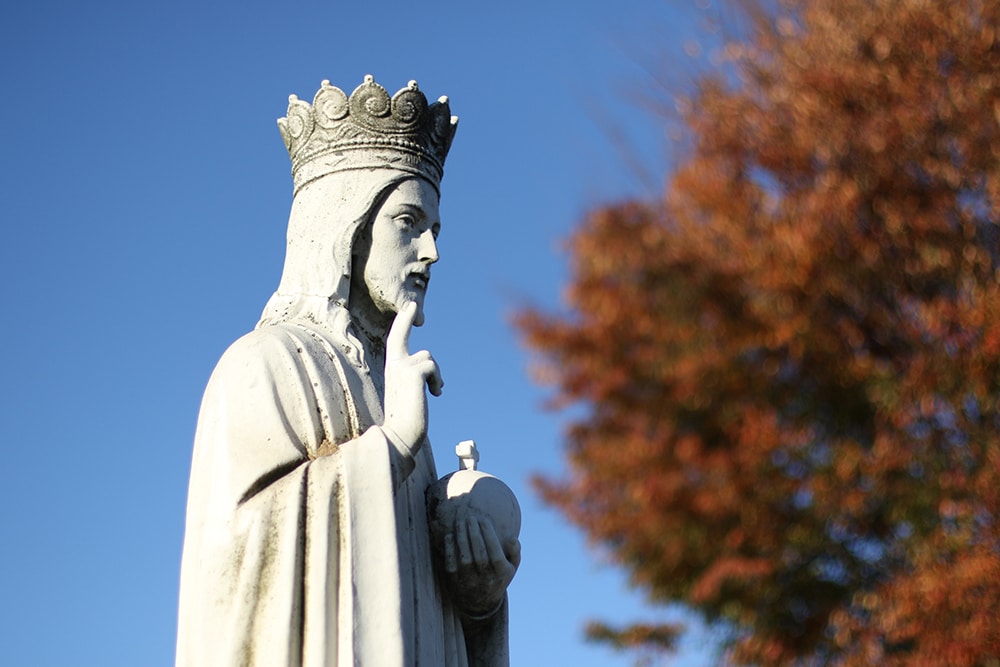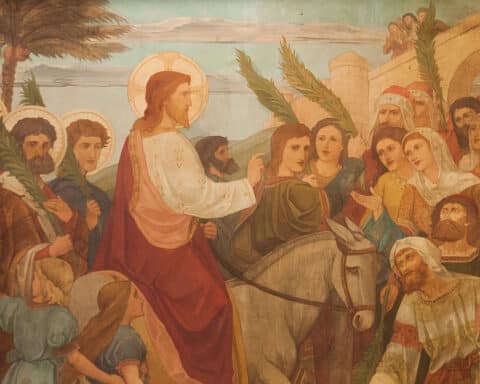
It is fitting that this final column appears on the solemnity of Christ the King. Over the last several weeks, I have attended to themes that have marked these columns over the last six years.
In this last column, I turn to the politics of the kingdom of God.
You often hear people say that politics have no place in the Church. In their book, “Secular Surge: A New Fault Line in American Politics” (Cambridge University Press, $29.99) a group of political scientists note that many Americans are leaving Christianity because they see it as being mixed up with the political. They grow more suspicious of a Church that gets involved in elections.
| November 21 – The Solemnity of Our Lord Jesus Christ, King of the Universe |
|---|
|
Dn 7:13-14 |
In some ways, these disaffiliated persons are correct. The Church ceases to practice the politics of the kingdom when full support is given to a specific candidate or when the ministers of the Church implicitly support a politician because of the D or R that follows their name.
But they’re also wrong to think that our Church has nothing to do with politics. The Church is intrinsically political, as we hear in today’s Gospel.
Jesus encounters Pilate. Pilate is the bad politician par excellence. He knows how to curry favor with the right people at the right time. And he’s climbing. He does not want to remain the procurator of backwater Jerusalem.
And yet, there’s Jesus. This Jewish man, who has been brought forward to be executed by Roman authorities.
Pilate doesn’t really care what happens. He doesn’t want turmoil. But whether Jesus is the king of the Jews or not is of little matter.
Are you the king?
Jesus evades. He never answers questions in the Gospel of John on their own terms.
Pilate tells Jesus that this is the charge that has been raised against him. The Pharisees and scribes have said that Jesus claims that he is the king of the Jews.
Jesus no longer evades. He tells Pilate that if his kingdom was of this world, there would be angels fighting for him. Pilate — like almost all of Jesus’ interlocutors in the Gospel of John — misses the point.
He is interested in processing the charge and moving on.
Ah! You do claim that you’re a king after all.
Jesus responds, “You say I am a king. For this I was born and for this I came into the world, to testify to the truth. Everyone who belongs to the truth listens to my voice” (Jn 18:37).
This is the kingship of Jesus. This is the politics of the kingdom of God. Jesus is the king who speaks truth into a world committed to lies. He proclaims light in the darkness.
The Church is political because the Church follows her Lord in speaking the truth.
Might isn’t right. Power is made perfect in weakness. Every life is sacred. This is the truth. And those who pursue the truth will listen to the voice of the king whose throne is the cross.
The Church must conform herself anew to the politics of the kingdom of God.
When we confuse worldly power or prestige with the cross, we become more like Pilate than Jesus Christ.
We become less interested in pursuing truth than the will to power.
On this solemnity, let us, as members of the Church, become even more political. But let our politics be founded in the cross of Our Lord.
A politics of love and communion made possible through the self-giving love of the Word made flesh.
Amen.
Timothy P. O’Malley, Ph.D., is the director of education at the McGrath Institute for Church Life at the University of Notre Dame.





